
HORIST: Does Trump negotiate WITH or LIKE the Asians?
There is a great difference between negotiating WITH Asians and negotiating LIKE Asians. In dealing with both China and North Korea, Trump maybe using the Asian approach to maximum advantage. It is a distinction worthy of exploring.
Having been involved in scores of negotiations with the Chinese – government and business leaders, as well as street vendors – I think I can speak to the negotiating differences between Westerners and Asians with significant experience.
One of the cultural differences between western and Asian negotiations is where one sets the opening demands. Asians tend to set them much further out. If you ask a street merchant the price of a pair of shoes worth between $20 and $30, the initial demand may be a seemingly ridiculous $200. If you know the game, you counter with a ridiculously low offer of $5. Since Asians are willing to move further away from their initial demand, after a series of offers and counteroffers, the closing price will be in the $20 to $30 range. This same bargaining technique applies to high government officials, where hundreds of millions of dollars can be at stake.
In western negotiations, a seemingly outrageous demand will more likely end negotiations in the belief that such an extreme demand precludes any mutually satisfactory settlement. In Asia, the folks on the other side of the table will insist that their demands are non-negotiable. They may even walk out of a meeting – only to return later.
This seems to be what is happening with North Korea. As they prepare for the sit-down meeting with Trump, they are taking a very hard line. They are threatening to cancel the talks. But will they? I doubt it. The North Korean foreign minister bloviated about the U.S./South Korean military exercises and comments made by White House Foreign Policy Advisor John Bolton, but they are still open to meeting. The canceling of the less important talks with South Korea is pure public relations. Everyone understands that progress with North Korea hinges on the United States.
I bring up the Asian negotiating style because Trump’s approach may not be as erratic as his critics believe. Like the Asians, Trump tends to initially set an extreme parameter, and then moves in as the issue progresses. Those who only see ineptitude or negative intent in these shifts accuse Trump of “changing his mind,” “breaking his word,” “playing to his base” or “not understanding the issues.” However, those hardline statements may be more cunning than incompetent.
While the #NeverTrump folks see only chaos in his statements and deems his compromises as “walking back” previous positions, there is a pattern – both in what he says and in the results he achieves. To wit:
Trump was chastised by the left for publicly berating the NATO heads of states for failing to meet their financial obligations to fund the alliance – leaving a disproportionate burden on the United States. He even “hinted” at abandoning the alliance. Such open criticism of our Euro allies was deemed to be undiplomatic by the pin-striped pants bureaucrats at the UN and in our own State Department – the same folks who talked about the problem behind closed doors for decades, but never solved it. The roundly criticized Trump achieved what his critics had failed to accomplish. Even as some leaders groused and moaned, they did start to invest more.
In a similar fashion, Trump was again criticized as a President serving above his pay grade when he publicly called on Arab nations to do more to fight against Islamic terrorism. Trump ignored the widely accepted complexities of the Middle East to clarify U.S. demands – fight the bad guys or lose our patronage and friendship. Trump removed a lot of “complexity” and ambiguity when he cut off funding to the Palestinians and Pakistanis.
By ripping up the failed playbook of the past, Trump was able to convene more than 50 Muslim-majority nations to develop a strategic action plan to deal with terrorism – and to do so in cooperation with Israel.
On the campaign trail, Trump said that America should have a temporary ban on Muslim immigration and migration. It would be hard to deny that it was not a rather extreme and over-the-top statement. When it came to implementing the actual policy, Trump imposed a much more limited and rational policy.
For obvious reasons, the never-Trump left wingers locked on his flamboyant campaign rhetoric as if it was policy and ignored the actual policy. Whenever the subject comes up in media reports, the old campaign talk plays center stage even though it is no longer meaningful or relevant. This sort of dishonesty was evident with a left-wing judge in the uber-liberal Ninth Federal Judicial District decided against Trump based on his campaign statement as opposed to the actual Executive Order.
With regard to the “Dreamers,” Trump again appeared to be setting an extreme position – basically ending a program that protected those illegal aliens brought here as children. Trump claimed that neither he nor President Obama had the authority to issue such an Executive Order. Obama had said the same thing before he rejected his own legal advice and issued the EO. (As one has come to expect, that about-face by Obama brought virtually no criticism from the fawning press.) After weeks of criticism for being heartless and wanting to deport the 800,000 eligible dreamers, Trump unveiled his proposal to Congress that protected 1.8 million dreamers – those who had officially signed on and those who failed to do so.
Even in the failed effort on Obamacare, Trump’s initial demands to immediately and completely repeal and replace got modified by ongoing negotiations. The failed legislation would have provided for a slower transition to a more private sector-based program. Trump achieved a significant goal by successfully ending the mandate that forced people into low cost programs with virtually no real coverage. Over time, the lack of funds from forced coverage will end Obamacare.
All this does not mean that everything Trump says can be disregarded as a negotiating strategy. With respect to the Paris Accords on climate change and the Iran Deal, he terminated the agreements – but only to open negotiations for what he calls “agreements better for the United States.”
The criticism of the President’s bellicose language is not without some justification – and I have been a constant critic. He could probably do better by toning it down a bit. But, in terms of the all-important big picture, Trump is having a lot of successes where his predecessors failed miserably.
The unforgiving and constant critics of the anti-Trump media seize on partial progress and temporary setbacks to spin Trump policies as universal failures. They refuse to recognize and report on positive progress, overcoming setbacks and the President’s outright successes — think ISIS, tax reform, judicial appointments and much more. Despite their awesome power, the Big Seven of the #NeverTrump media (ABC, CBS, NBC, CNN, MSNBC, New York Times and the Washington Post) is failing to convince a public which believes the nation is now going in the right direction by an almost two-thirds majority.









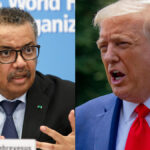
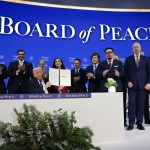










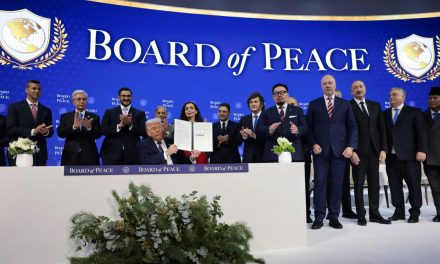
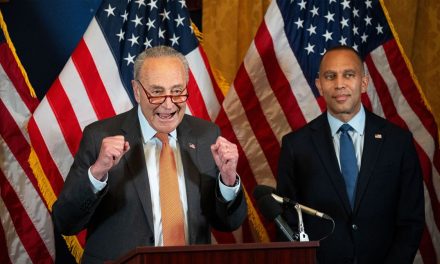



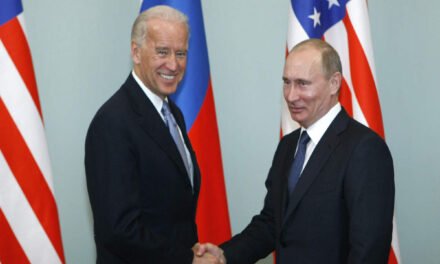

I'm waiting for when the Reich anoints Trump as a demigod. It's only a matter of time....
Omar is one worthless individual. She should not be in Congress, or for that matter, not in this country.
Larry, you are right, politics should have nothing to do with the FIFA games. Unfortunately the orange ignoramus that you…
Local police are not constitutionally required to enforce federal immigration laws, as immigration enforcement is the responsibility of the federal…
He’s a magarat who hates Somali’s. Sure, she hired that guy. BUSTED